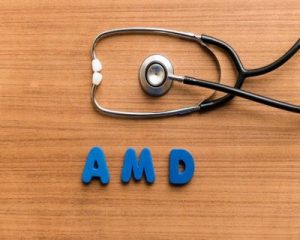- Home
- Editorial
- News
- Practice Guidelines
- Anesthesiology Guidelines
- Cancer Guidelines
- Cardiac Sciences Guidelines
- Critical Care Guidelines
- Dentistry Guidelines
- Dermatology Guidelines
- Diabetes and Endo Guidelines
- Diagnostics Guidelines
- ENT Guidelines
- Featured Practice Guidelines
- Gastroenterology Guidelines
- Geriatrics Guidelines
- Medicine Guidelines
- Nephrology Guidelines
- Neurosciences Guidelines
- Obs and Gynae Guidelines
- Ophthalmology Guidelines
- Orthopaedics Guidelines
- Paediatrics Guidelines
- Psychiatry Guidelines
- Pulmonology Guidelines
- Radiology Guidelines
- Surgery Guidelines
- Urology Guidelines
Gut microbes may influence age-related macular degeneration

Bacteria in your intestines may play an important role in determining if you will develop blinding wet Age-related Macular Degeneration (AMD).
Age-related Macular Degeneration (AMD) is the leading cause of irreversible blindness in the industrialized world, affecting over 10 million individuals in North America. A study lead by Dr. Przemyslaw (Mike) Sapieha, researcher at Hôpital Maisonneuve-Rosemont (CIUSSS de l'Est-de-l'Île-de-Montréal) and professor at the University of Montreal, published in EMBO Molecular Medicine, uncovered that bacteria in your intestines may play an important role in determining if you will develop blinding wet AMD.
AMD is characterized by a heightened immune response, sizeable deposits of fat debris at the back of the eye called soft drusen (early AMD), destruction of nerve cells, and growth of new diseased blood vessels (wet AMD, late form). While only accounting for roughly 10% of cases of AMD, wet AMD is the primary form leading to blindness. Current treatments becomes less effective with time. It is therefore important to find new ways to prevent the onset of this debilitating disease.
While many studies on the genetics of AMD have identified several genes that predispose to AMD, no single gene can account for development of the disease. Epidemiological data suggests that in men, overall abdominal obesity is the second most important environmental risk factor, after smoking, for progression to late-stage blinding AMD. Until now, the mechanisms that underscore this observation remained ill defined. Elisabeth Andriessen, a PhD student in the lab of Professor Sapieha found that changes in the bacterial communities of your gut, such as those brought on by a diet rich in fat, can cause long-term low-grade inflammation in your whole body and eventually promote diseases such as wet AMD. Among the series of experiments conducted as part of this study, the group performed fecal transfers from mice receiving regular fat diets, compared to those receiving a high fat diet, and found a significant amelioration of wet AMD.
"Our study suggests that diets rich in fat alter the gut microbiome in a way that aggravates wet AMD, a vascular disease of the aging eye. Influencing the types of microbes that reside in your gut either through diet or by other means may thus affect the chances of developing AMD and progression of this blinding disease", says Dr Sapieha. Professor Sapieha holds the Wolfe Professorship in Translational Vision Research and a Canada Research Chair in retinal cell biology. The study was funded by the Foundation Fighting Blindness, the Canadian Institutes of Health Research, and the Fond de Recherche en Ophthalmologie de l'Université de Montreal.
You can read the full Article by clicking on the link :
Elisabeth MMA Andriessen, Ariel M Wilson, Gaelle Mawambo, Agnieszka Dejda, Khalil Miloudi, Florian Sennlaub and Przemyslaw (Mike) Sapieha. Gut microbiota influences pathological angiogenesis in obesity‐driven choroidal neovascularization. EMBO Molecular Medicine, November 15, 2016 DOI: 10.15252/emmm.201606531

Disclaimer: This site is primarily intended for healthcare professionals. Any content/information on this website does not replace the advice of medical and/or health professionals and should not be construed as medical/diagnostic advice/endorsement or prescription. Use of this site is subject to our terms of use, privacy policy, advertisement policy. © 2020 Minerva Medical Treatment Pvt Ltd